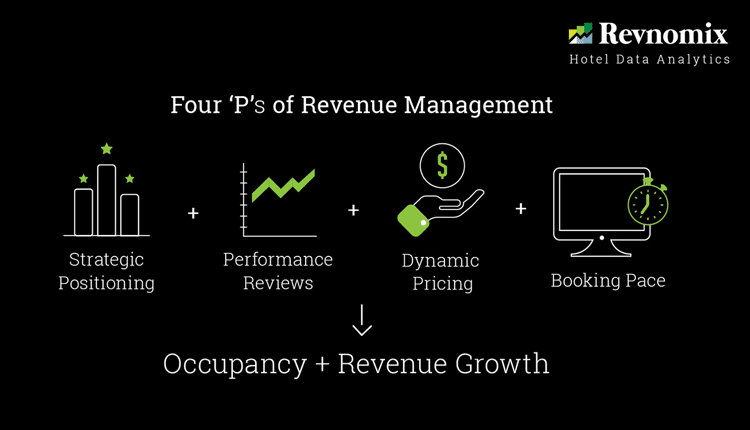Introduction: What is Yield Management and How Does it Actually Work?
Yield management (also known as revenue management) focuses on selling to the right customers at the right time for the right prices. For hotels, this means you might need to sell the right room, to the right guest, at the best possible time, for high prices.
Yield management is a process, utilized by hoteliers and other businesses, to maximize revenue from a finite number of rooms. Yield management typically involves the use of three basic categories: yield forecasting, inventory control, and pricing.
-Forecasting predicts demand for space in the future based on past occupancy rates.
-Inventory control monitors the number of empty rooms at any given time and takes actions such as increasing prices or reducing availability when necessary.
-Pricing is the final category in yield management and involves moving prices up or down depending on market trends.
What are the Benefits of Yield Management?
Yield management is a marketing technique that can improve the revenue of an organization. It provides organizations with the ability to maximize their revenues by balancing prices, product mix, and inventory levels to meet market demand. The benefits of yield management include:
1) Increased Revenue- Yield management in the hospitality industry aims to help you make the most of your available inventory. It helps you generate more revenue even when occupancy rates are lower than 100%. Optimizing your yield management strategy can increase returns in both peak and low season periods.
2) Reduced Errors- With hotel yield management strategies, you can accurately forecast your room rates to reduce the chance of any mistakes. A hotel management program that is revenue-focused will help you eliminate the risk of human error, which could lead to lower revenue.
Automating your business is beneficial for making your hotel more profitable & competitive in the future.
3) Increased value proposition- With consumers, the perceived value is an indicator of how much they believe something is worth to them and they are often willing to pay more for it when it is scarce or unavailable.
You can create a sense of worth in your potential clients by adjusting your prices in response to the duration of the booking.
4) Effective Segmentation of Customers-Market segmentation is crucial to any business strategy. A forecast can provide insights on the specificity of such a market segmentation and help capture the nuances.
Hotels make money throughout the year from their various guests, which include lone travelers, families, and business guests. They can use this information to independently find out which segments they’re missing out on and change their marketing strategy accordingly.
5) Understand booking patterns- Different customers like to book their reservations differently, which means that you should understand their booking patterns if you want to be able to give them the best experience possible.
With this type of management system, you can tailor the prices to booking behavior and offer them discounts when they book last minute.
How AI-Enabled Yield Management Systems Can Help with 5 Amazing Use Cases
Yield management has been around for decades, but it is only now that the technology is becoming more prevalent. Yield management systems are designed to forecast future customer demand and optimize the allocation of limited inventory to maximize profit.
They do so by using historical data, current customer demand, and predictive analytics. Yield management systems are becoming more popular in the world of travel because they have a lot to offer.
The benefits range from being able to increase customer satisfaction to being able to lower costs and improving profit margins. The five amazing use cases of AI-enabled yield management systems are:
- Improve customer engagement through personalized, contextual offerings
- Increase conversion rates with dynamic pricing and offers
- Quantify the impact of marketing campaigns with real-time analytics
- Reduce operational costs by automating manual processes
- Optimize inventory levels with visibility into supply and demand
What are the Disadvantages of Yield Management for a Hotel?
Many hoteliers in the industry believe that yield management is a sign of a well-managed hotel. This is because it helps in making decisions when it comes to pricing and room availability. However, it isn’t without its shortcomings. The drawbacks of yield management for a hotel include:
1) One of the disadvantages to yield management is that it mostly analyzes general trends, which means it tends to ignore individual prices.
One example is a hotel – if a customer has been staying with them for a while, they may end up paying more money for the same service as someone who booked a few days in advance. This can penalize regular customers and isn’t desirable.
2) The yield management pricing will vary depending on the season. For example, guests may have to face higher prices during high-demand periods.
However, those guests paying higher prices will feel everything is based on how much the accommodation costs. If there’re any discrepancies in their experience that result in a lack of quality service, then it puts the hotel at risk for bad reviews and will only further damage the brand.
3) To make the best predictions, the hotel industry collects data and organizes it before using it to create new pricing systems. Forecasting, on the other hand, is an area where AI might be less effective.
There are many factors that may influence whether or not people will want to buy a product or service in the future, so an inaccuracy in forecasting revenue projections might lead to profits not matching expectations.
Why Hotels Need to Embrace Yield Management Today
A lot of hotels are operating on a “one size fits all” mentality. They want to keep their prices low and therefore they don’t offer the best rates to the people who need it most.
Some resorts also operate on a “take it or leave it” pricing policy, which means there is no possibility for negotiation. By doing this, they are ignoring market trends and opportunities for increasing revenue.
Moreover, many hotels don’t understand how important yield management is in today’s marketplace. The competition has become fierce and a lot of companies have sprung up in recent years that specifically focus on lowering hotel rates for certain days or at certain times.
Yield management is one thing that hotels need to embrace today. It makes it easier for them to generate revenue by charging higher rates during certain times when they know there is low supply in the market and demand is high.
With this strategy, the hotel balances its inventory cost with the income from booking rates at different rates for different periods of time.
Revnomix Solutions provides the best yield management service. They boast experts across a number of different markets. Revnomix helps hoteliers with hotel data processing, analytics, and revenue management to make their decisions easier.
We are your one-stop destination for Data Analytics & Revenue Management. We utilize our experience, the latest technology, and customer service to make it seamless for you!
Also Read – Strategies for Hoteliers to Increase Hotel Occupancy and Revenue







